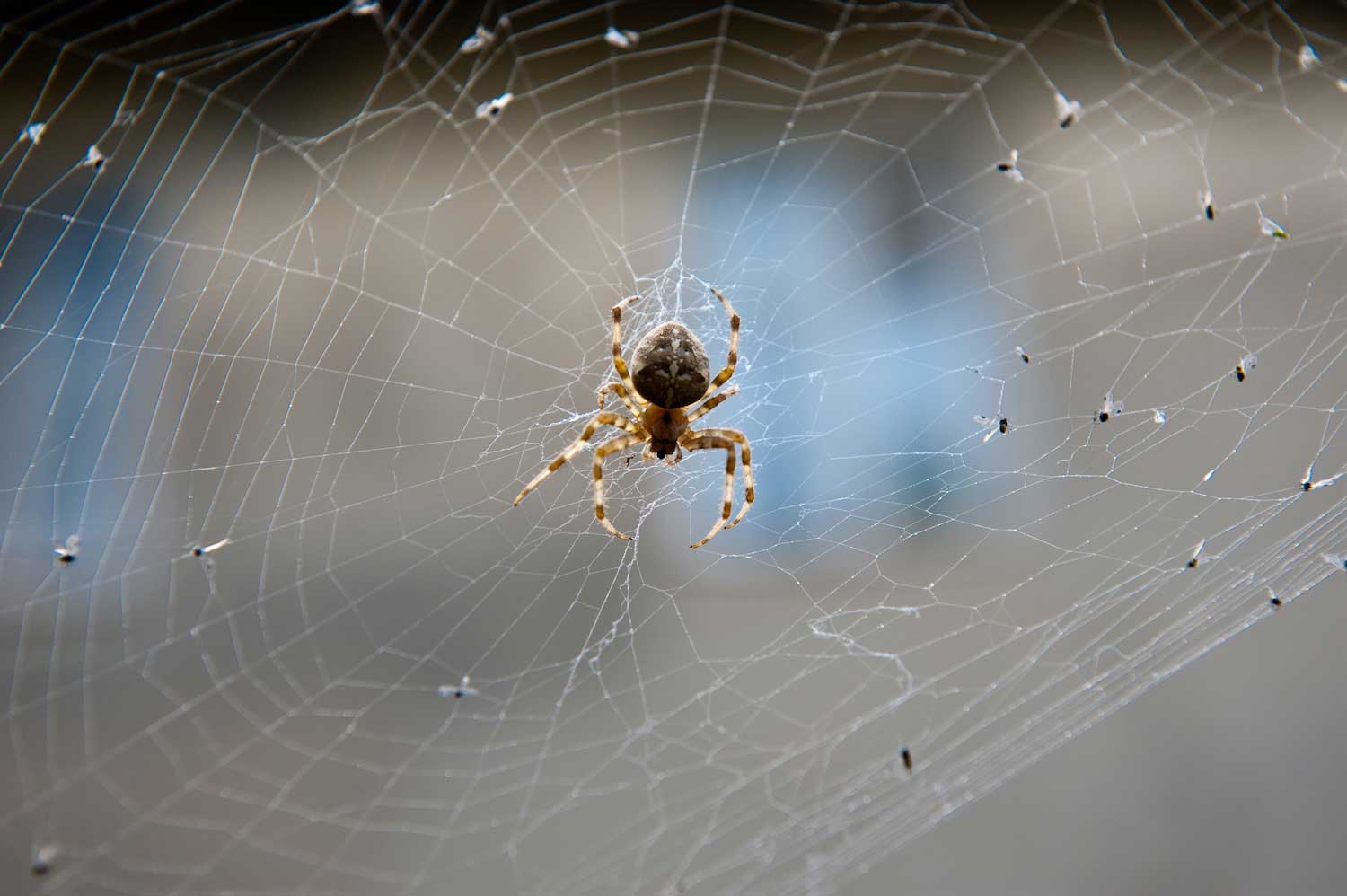March 14 is Save a Spider Day, so be a savior instead of a squisher

Spiders are one of the most feared things on Earth, with millions of people worldwide suffering from varying degrees of arachnophobia. And even many of us who aren't afraid of spiders would rather not see one lurking in the corner of our bedroom or kitchen.
But for one day at least, you should think twice before you kill every spider you see. That's because March 14 is Save a Spider Day.
If you're more of a squisher than a savior when it comes to spiders, maybe learning more about arachnids will help you develop enough of an appreciation for them that every day can be Save a Spider Day. Here are five reasons why you should think twice before squishing the next spider you see.
They help control insect populations
All spiders are predators, and they mainly feast on insects, ridding your environment of many bugs that could otherwise be bothering you. Think of all the pesky flies, mosquitoes and other creepy crawlies that could be in your house right now if it weren't for the spiders keeping the bug population in check.
According to National Geographic, a spider typically eats about 2,000 insects a year, making them one of the most effective forms of pest control, all at no charge to you. In fact, spiders can eat their own body weight in one meal, according to the San Diego Zoo.
They don’t bite — usually
The vast majority of spiders found in Illinois and across the world aren’t venomous, and even the ones that are only bite when threatened, according to the San Diego Zoo.
Of the more than 43,000 spider species in the world, fewer than 30 — that's less than one-tenth of 1% — are dangerous to humans, Britannica reports.
While nearly all spiders have venom in their fangs, hardly any of the 3,500 spider species native to the United States can even penetrate skin with their bite. In Illinois, only two kinds of spiders are considered dangerous to humans, the black widow and the brown recluse, according to the Illinois Department of Natural Resources. Neither the brown recluse nor the black widow is known to be aggressive toward humans, although they may bite if provoked.
They’re amazing engineers
Walking into a spider web is instantly regrettable, but the silk in those beautiful webs isn't just sticky, it has superhuman strength too. Even though it's thinner than a strand of human hair, spider silk is the strongest natural fiber on Earth, and humans have yet to create a substance stronger than it, according to Science magazine.
Catching a glimpse of a spider spinning its web can be like watching art in motion, with their intricate shapes and patterns. And while spider webs are the most well-known use for this super-strong substance, spiders use their silk for many things. Some spiders use their silk as parachutes, or to create drag lines to carry them from place to place. Many spiders also wrap up their prey in cocoons made of silk, and others line their nests with it.
The strength of a spider's silk comes from how it's made. In researching the silk of brown recluse spiders, scientists were able to determine each individual strand of silk, which is 1,000 times thinner than a single strand of human hair, is composed of thousands of nanostrands, Science magazine reports.
They’ve helped create advancements in science and medicine
Spiders don't just help humans by helping control insect populations; they've also been studied extensively and have aided in advancements in science and medicine. Arachnids have been used in research about the effects of weightlessness in space, and spider venom has been used in drug development research, IDNR reports.
Spider silk has also proven useful to humans too. Ancient civilizations used spider silk to stop bleeding and also as fishing line to catch small fish, according to the University of Bristol. More recently, the silk strings have been used to make crosshairs in optical devices such as telescopes and guns, a practice that continued until World War II.
Researchers have long been working on creating a way to make spider silk in large quantities because it could have even more useful applications for humans, Popular Mechanics reports. For example, because spider silk is so strong, it could potentially be used to create more effective bulletproof gear than what is currently used, which is made of Kevlar.
They’re living creatures, too
If nothing else is enough to convince you not to squish the next spider you see, maybe an appeal to your greater sense of pacifism will do the trick. After all, spiders are living creatures just like us. And remember, too, that we are intruding on their environment as much as they are on ours.
You don't have to like spiders to coexist with them. You can even stay as far away from them as possible, just don't squish them, step on them or otherwise kill them.
If you still can't stand the idea of letting spiders survive and thrive, consider moving to Antarctica, the only place on Earth where arachnids don't live.
